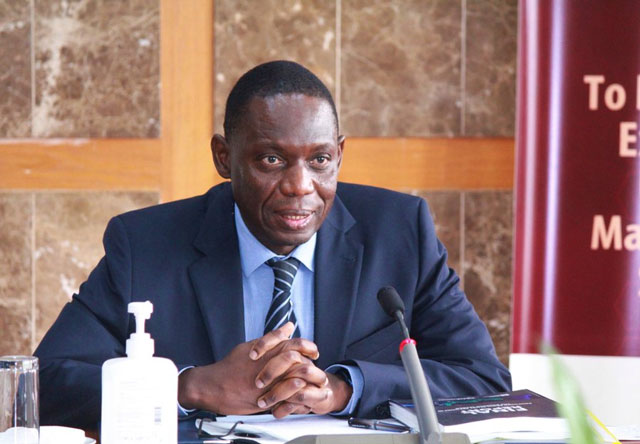
Kampala, Uganda | THE INDEPENDENT | Bank of Uganda (BOU) has reported that the economy is estimated to have grown by between 6.5 and 7 percent in 2021, compared to a 1.5 percent contraction in 2020, when the COVID-19 pandemic forced parts of the economy to shut down.
Deputy Governor Dr. Michael Atingi-Ego confirmed the growth, however warning they remain cautious about the threat COVID-19 still poses to the economy.
“Considering this recovery and signs that the effect of the Omicron outbreak on economic activity has been relatively small, the outlook for economic growth is more positive than earlier projected,” Antingi-Ego says.
As such, BOU is to continue supporting the education and hospitality sectors with credit relief following the lifting of restrictions on the two earlier this year.
The government had maintained a ban on several business segments since the outbreak of COVID-19 in March 2020.
They included public entertainment activities, bars and the night economy, as well as schools and other leaning institutions, which the government feared would pause the biggest risk of infections.
As further measures, BOU will maintain the COVID-19 Liquidity Assistance program (CLAP) to manage potential liquidity risks arising from the pandemic until the economic situation normalises.
“In 2022, there could be a loss of growth momentum as global factors turn adverse, but real GDP is projected to grow by around 6 per cent as domestic demand recovery broadens. However, lower global growth, continued supply chain disruptions, and tighter global monetary and financing conditions could constrain external demand,” the governor said in his Monetary Policy Statement:
In 2023/24, growth is expected at 7 percent or more as more investments come into the oil and gas industry after the Final Investment Decision last month, the recovery of the tourism sector, as well as more government infrastructure investments.
The government has however called for caution because the threat of new and stronger variants of the COVID-19 still remains, which could lead to new lockdowns in the country and the international markets.
And much as infrastructure spending is expected to boost growth, it is uncertain how government’s plans to control expenditure might affect this.
“Another important source of uncertainty for the outlook is the public investment and how this will be financed under the fiscal consolidation path, which is necessary to keep debt sustainable and avoid the risk of debt distress,” Atingi-Ego says.
Even the impact of the investments in the oil and gas sector and on infrastructure cannot be guaranteed because of a likelihood of delays in procurement and parliamentary procedure.
“The slow execution of public investment projects and further delays in oil investments could dampen the growth outlook,” he says, adding that the increasing frequency and intensity of climate shocks could undermine agricultural activity.
Additionally, risks remain from the global economic slowdown, the prolonged supply chain bottlenecks, and geopolitical tensions like the standoffs between China and the US and Russia and NATO countries.
The other worry is about the rising global inflation, with, for example, the US recording the highest inflation rate in decades of around 7.5 percent, while UK inflation rose to 5.4 percent.
The trend is likely to lead to further hikes in the global manufactured goods and petroleum products, which could further push inflation in Uganda up and affect growth rates.
“Global inflationary pressures, which calls for a faster withdrawal of monetary accommodation, could result in a change in investor risk sentiment and the associated tighter domestic financial conditions, and this could stall the domestic economic recovery,” the DG says.
On a positive side, accelerated vaccine rollout, waning of the pandemic, and improved efficiency in the execution of public investments would help boost economic activity.
The Monetary Policy Committee -MPC assessed that the economic recovery continues to require monetary policy support, and this means the BOU has to maintain a low interest rate.
“Based on an assessment of the current macroeconomic situation and the outlook and balance of risks, the MPC judged that keeping Central Bank Rate unchanged at 6.5 per cent would be consistent with meeting the inflation target of 5 per cent sustainably in the medium term while supporting economic growth recovery.”
*****
URN
 The Independent Uganda: You get the Truth we Pay the Price
The Independent Uganda: You get the Truth we Pay the Price




Uganda oyeee!!